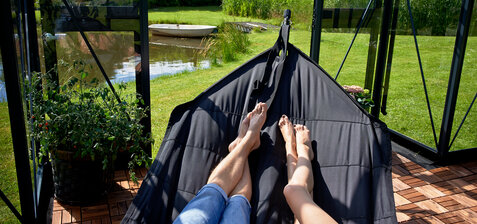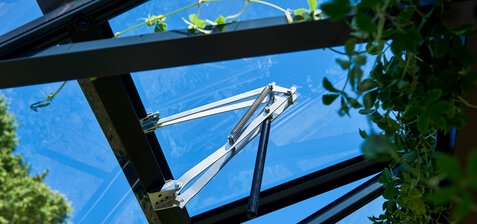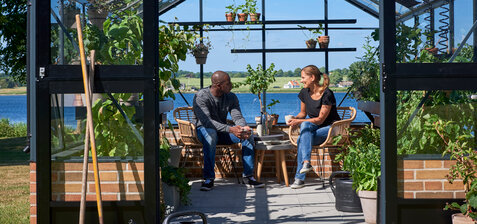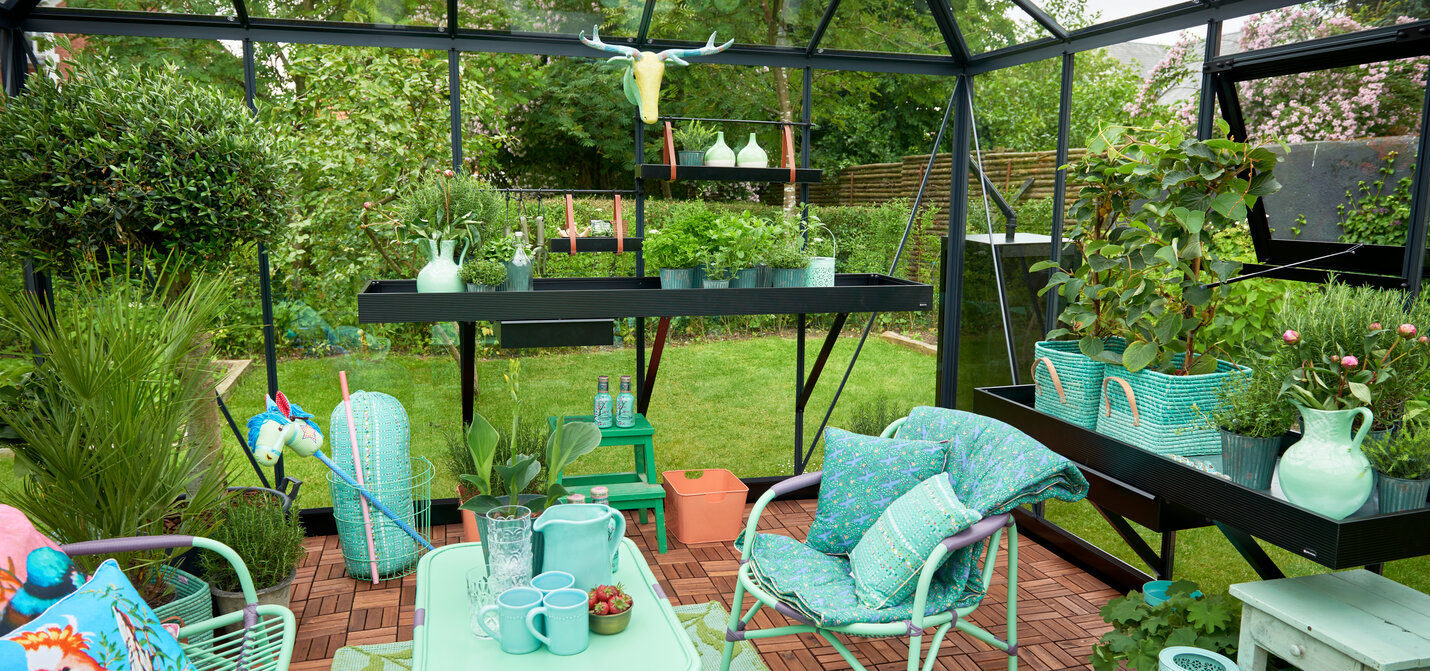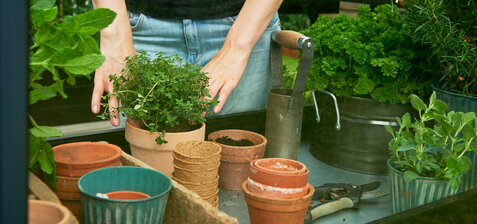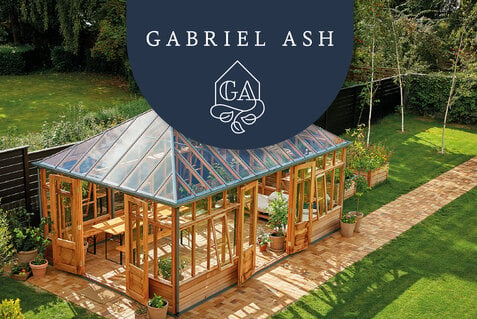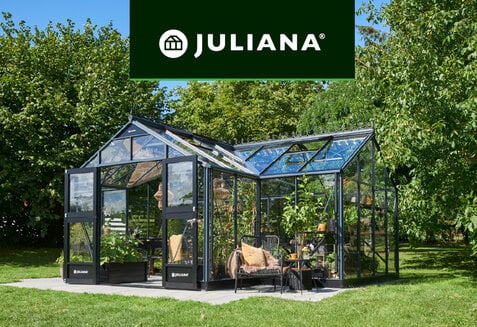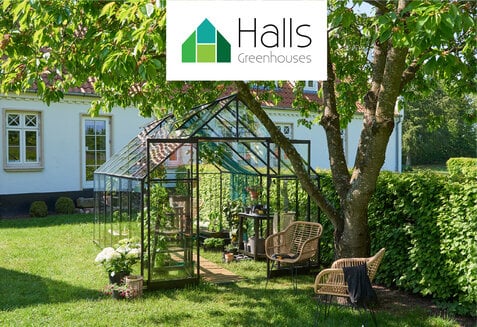Seek inspiration for greenhouse living
On this page, we aim to inspire you with the many joys, possibilities, and purposes that greenhouse living can offer. We Help People Grow.
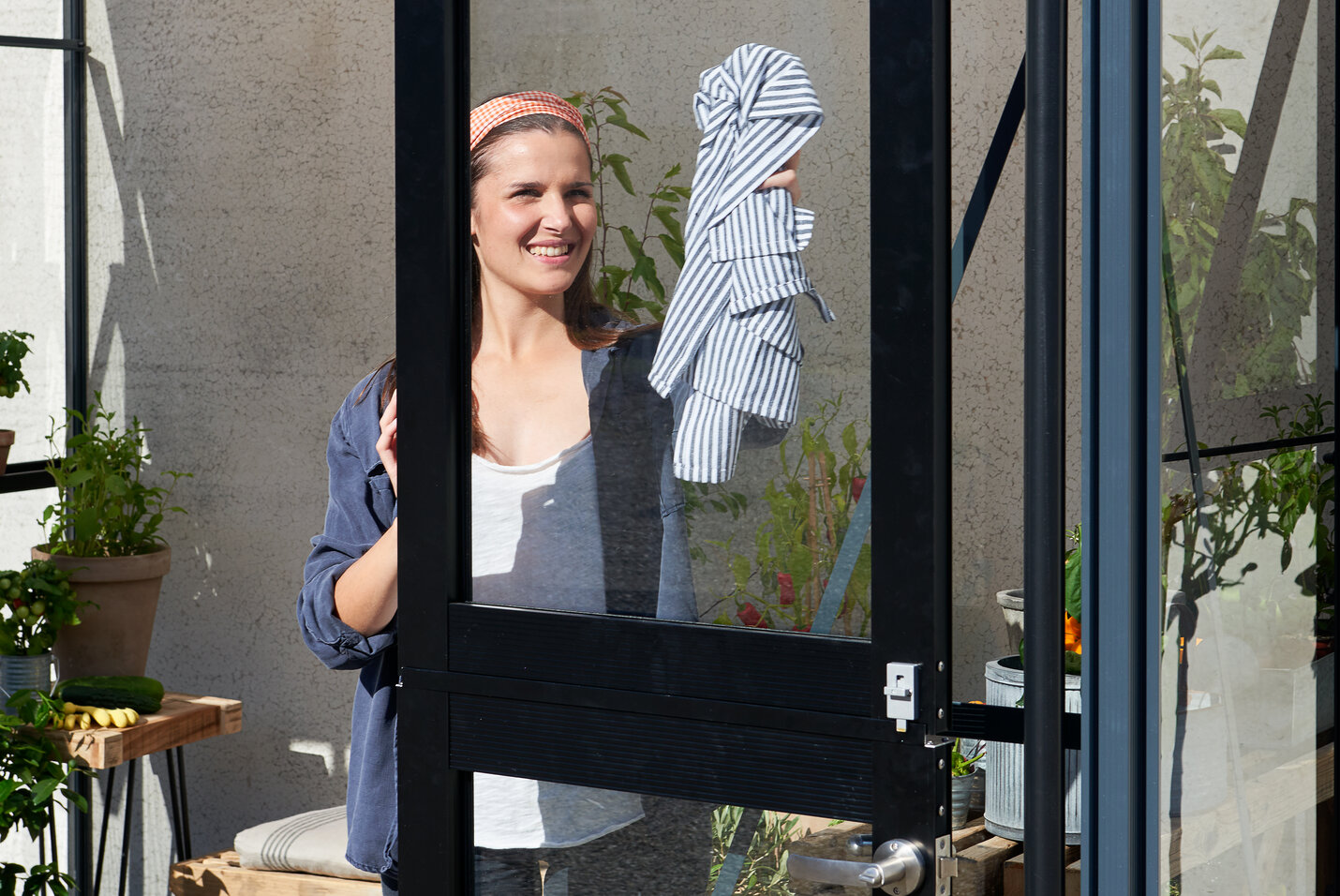
Greenhouse Care Guide
A greenhouse should be maintained, so it can bring joy and benefit for many years. Good maintenance can extend the life span of your greenhouse...
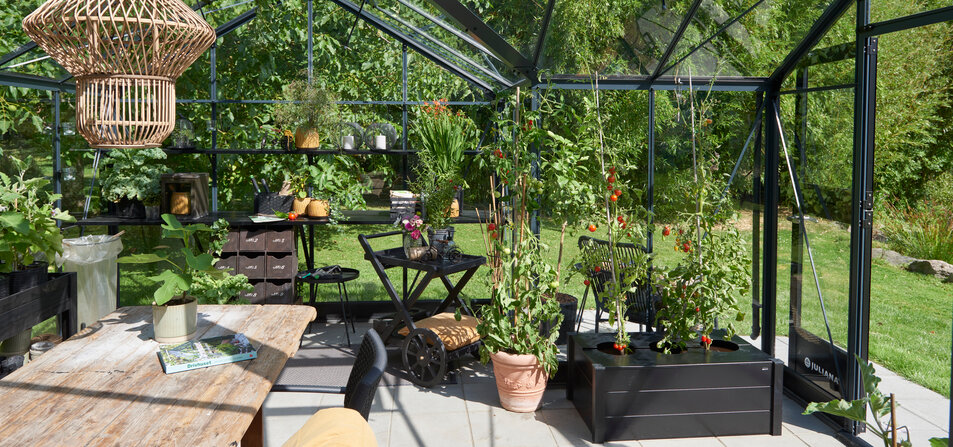
Greenhouse interior design
If you want to make the most out of your greenhouse, it's a good idea to carefully consider your greenhouse interior design and create a welcoming environment where you enjoy spending time daily. It's undoubtedly a very individual...
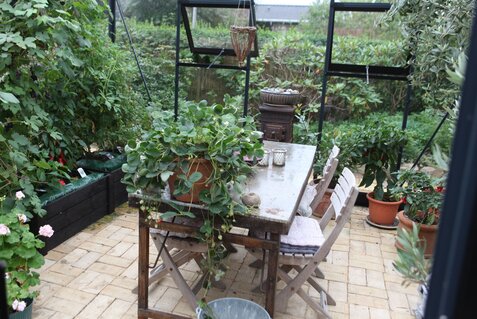
The Greenhouse Floor
When planning to purchase a greenhouse it is essential to consider what flooring you would like to have in your greenhouse. In this article you will be presented with some of the possibilities.
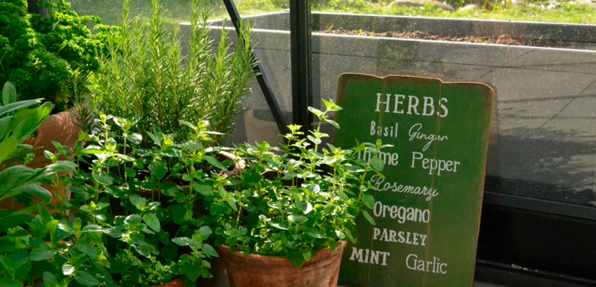
Herbs in the Greenhouse
Spring has begun. The days are getting longer, and it's warm in the greenhouse. Who doesn't dream of a corner in the greenhouse with herbs? In this article, you will learn to differentiate between the various groups of herbs...
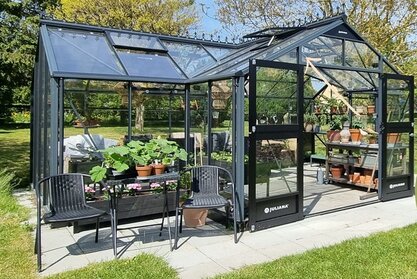
The Structure of a Greenhouse
You are probably the happy owner of a greenhouse, or you are on your way to getting one. There are many types of greenhouses on the market, and broadly speaking, they are very similar. However, there are significant differences that are beneficial...

Plan Your New Greenhouse calender
What has worked? What needs to be changed? It's time to plan the upcoming year's cultivation in the greenhouse. Christine from Spirekassen gives tips for planning the upcoming season in the greenhouse...
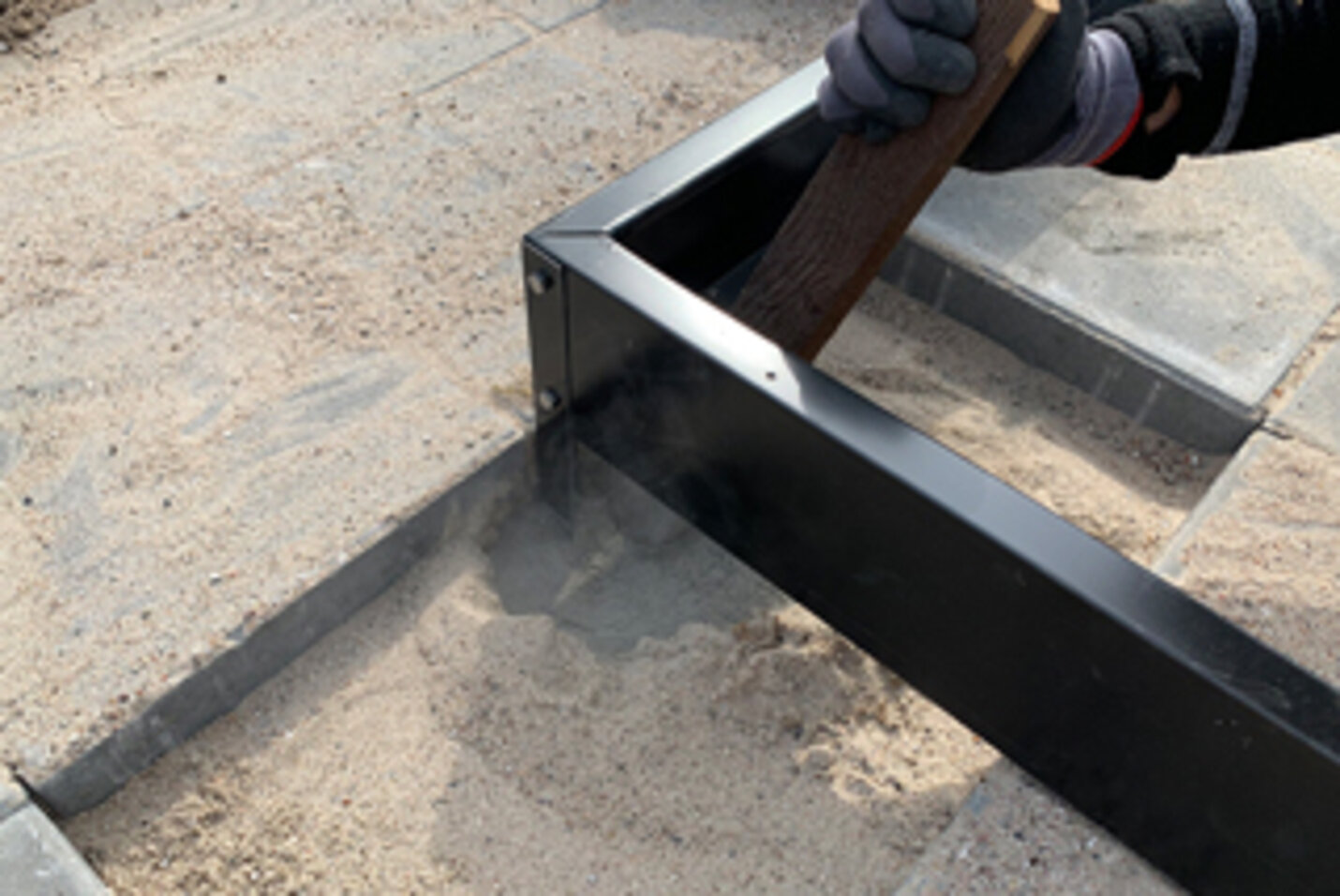
How to Build a Good Base for Your Greenhouse
Louise from the Juliana Greenhouses has gotten a new greenhouse and experts will in this article, show how to make the foundation.
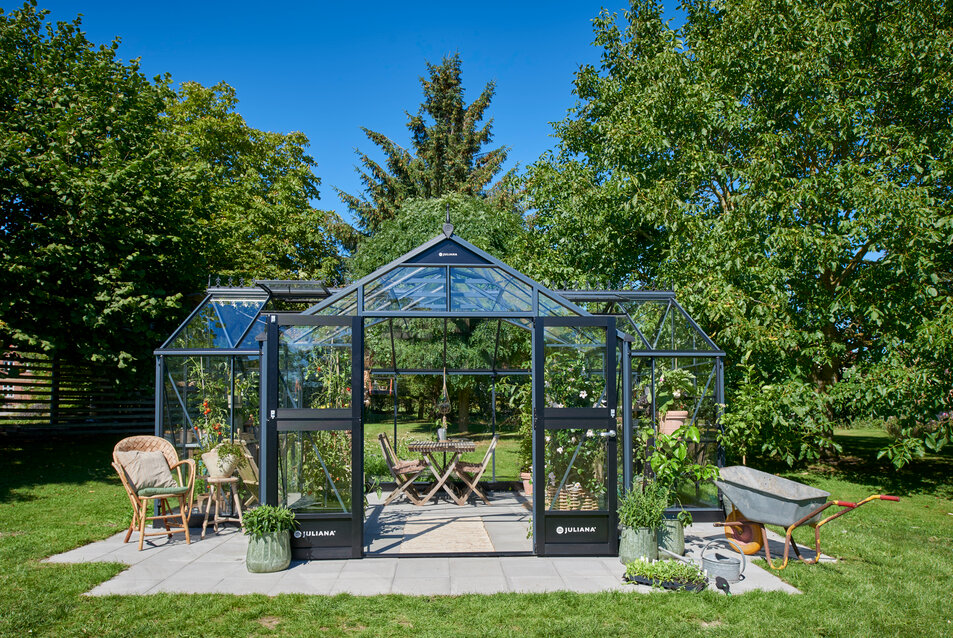
A Love Story - Christine and Her New Juliana Orangeri
Christine from Spirekassen talks about her new greenhouse.
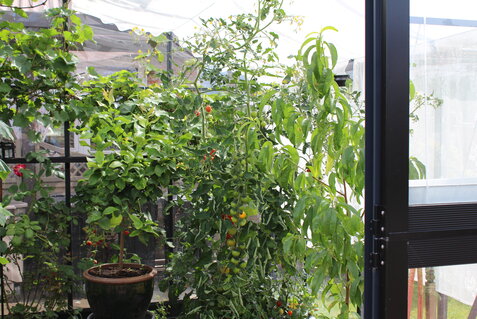
Guide: Tomatoes in the Greenhouse
Is there anything better than growing your own tomatoes in the greenhouse? We do not think there is, therefore, we have made you a detailed guide in which you can read more about cultivating tomatoes in the greenhouse.
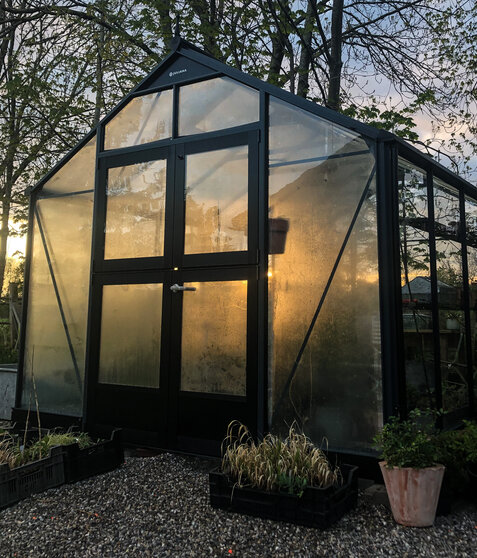
My First Year in the Greenhouse
Help yourself by planning the season to get a good start on greenhouse life. Everyone who buys a greenhouse has many questions and desires at the beginning. Once you have decided how you want to use your greenhouse, you should start preparing accordingly...
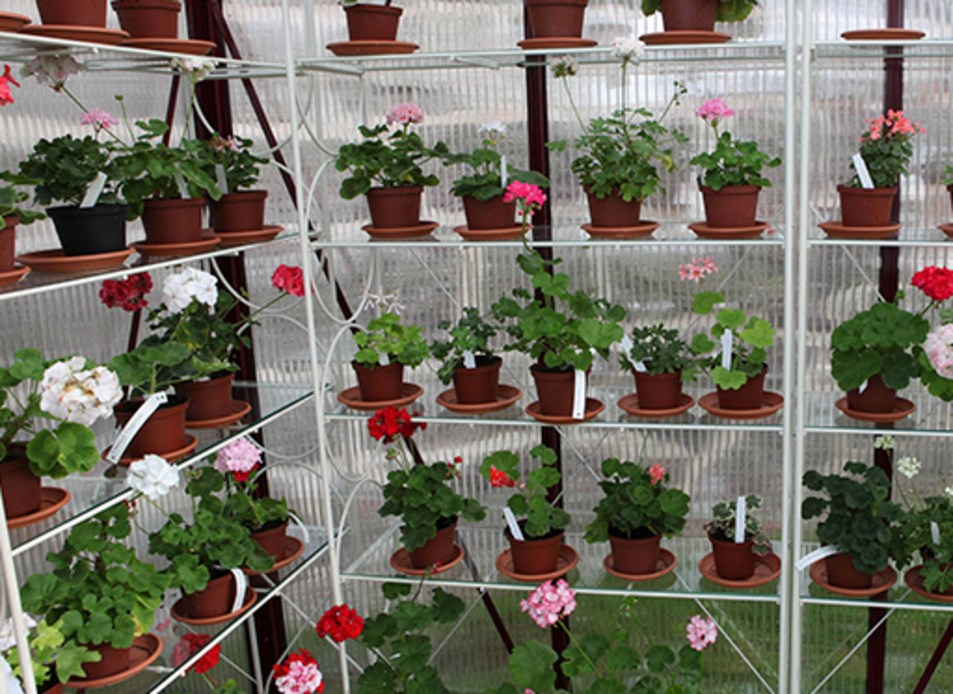
Vertical Gardening: Stand on Your Head and Grow Vertically
In your own greenhouse (and of course also in your garden, balcony, or terrace), you can grow vertically and get a higher yield in less space. As greenhouses have become very popular and have almost completely outcompeted the garden rooms of the 70s and 80s, and as we seek more green surroundings, we also demand more space for staying in the greenhouse. Plants and people can do something together, and accomplish something together. We utilize each other and gain energy...

Need more inspiration?
Whether you need a greenhouse, wall greenhouse, or orangery, Juliana Group A/S undoubtedly has what you're looking for. - Order our catalogues and let yourself be inspired.
JULIANA GROUP
Juliana Group is a leading global supplier of quality residential greenhouses. Founded in 1963 by Mogens A. Stærmose in Odense, Denmark, the family-owned company is today owned by third generation, Nikolaj Stærmose. The headquarter remains Odense-based with subsidiaries in the UK and Germany and export to more than 20 countries.
’We help people grow’. That is why our brands Halls, Juliana, and Gabriel Ash all set the frame for experiences that are as natural as they are magical. Despite our long history, we’re future-focused and curious on how we can improve the sustainability of our greenhouses. Learn more about Juliana and find inspiration for life in the greenhouse in our inspirational universe.
